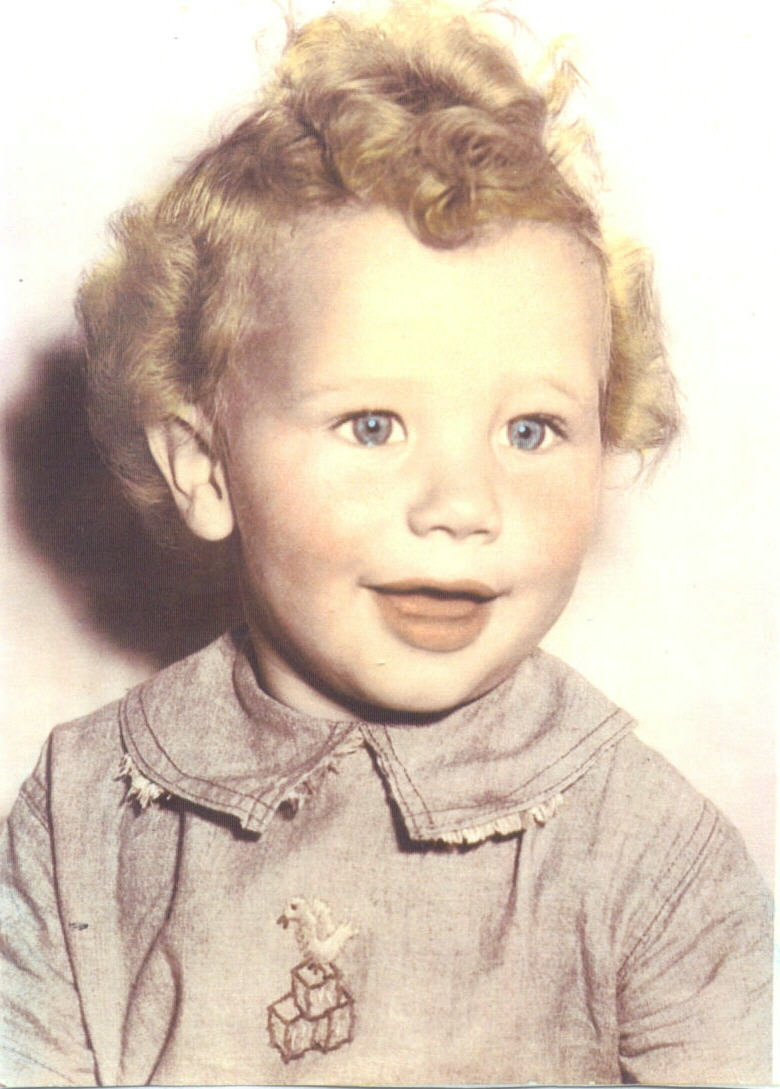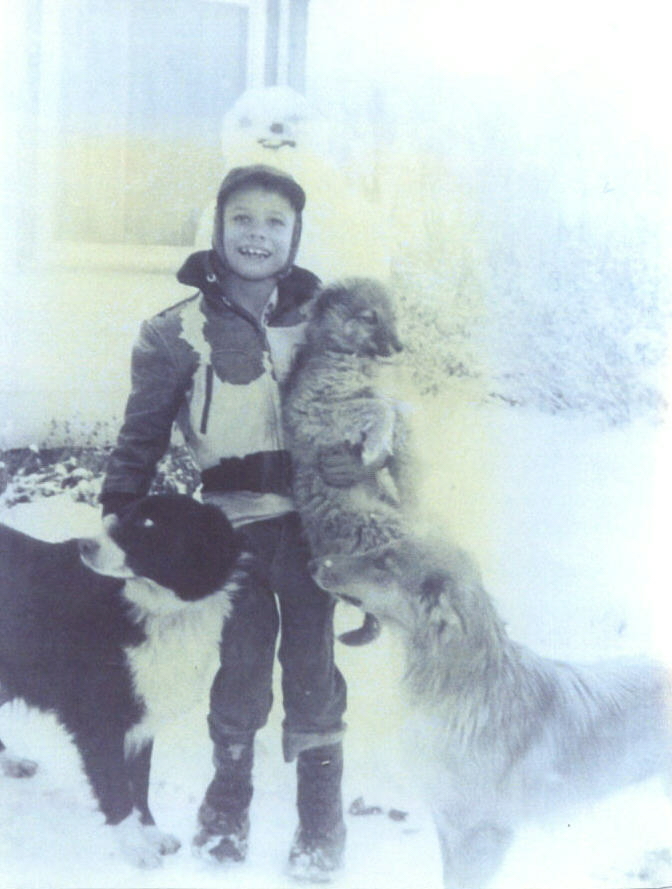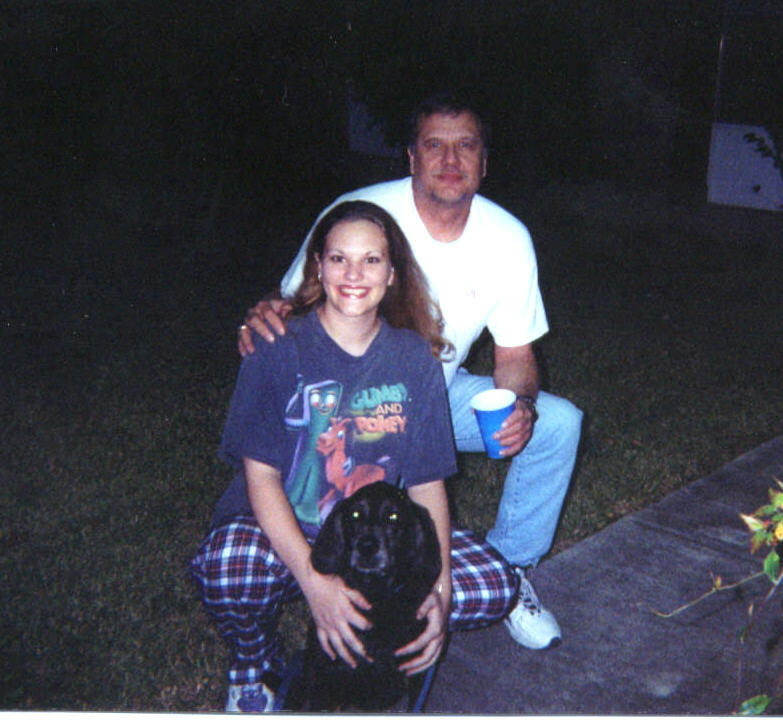Francis Gene Ferguson




After high school he took a year off and in 1967 joined the Army National Guard. It was then that his unit was called up for active duty in Vietnam. Both he and his brother Byron were called to serve. However, they were the only two adult sons of Bernetta, and by law the Army could only send one son unless they both signed a waiver to be sent to a combat zone. Since Byron had just got married and had a baby on the way, Gene volunteered to go at the age of 19. Byron stayed and served his active duty time at a base in the United States. Gene went to basic training and was trained as an intermediate speed radio operator at Fort Knox, Kentucky. On September 14, 1968 Gene arrived in Vietnam on his 20th birthday. He was in Vietnam for one year. He was in the 116th Combat Engineers in this unit he was a demolition expert and a speed radio operator. In 1969 he finished his service time and went back to Idaho and attended Ricks Junior College.
He received his Associates’ degree in psychology before going to Idaho State University to get his Bachelor's degree. After graduation, he rejoined the Army in 1972 as a commissioned officer. His first permanent duty station was at Fort Devens, Massachusetts. While there, he met his future wife, Kathy Jo Shannon, who was also in the Army. They were married in a little over a year. After getting married, Gene stayed in the Army and was stationed in Germany, Texas, Washington, California, Virginia, and Colorado. Gene and Kathy had two daughters, Bernetta and Celeste; they were born in 1980 and 1982. In 1984 Gene went back to school to obtain his Master's degree in logistics management. Gene stayed in the military for a total of 20 years and retired as a Lieutenant Colonel in 1992. Shortly after retiring, Gene and Kathy divorced and he raised their two daughters. Since then Gene has worked at the INEEL (Idaho National Engineering and Environmental Lab) and at Bechtel Enterprises in San Francisco as the property manager for the ground missile defense project. Currently he is 55 years old and in excellent health. During his free time he enjoys fishing and relaxing on his island property in Alaska, hunting, motorcycling, biking, and hiking.
My connection to the interviewee is that he is my father. The topic of my interview is about his experiences and feelings while he was in Vietnam and when he returned to the United States. This is only part of his story about being involved in a war and I want to share the rest of his story.
What did you believe were the reasons for fighting in Vietnam?
I believed that we were fighting in order to free a country and its people from oppression.
Were you drafted and what did you think about the draft?
Yes, I was drafted. I thought that if people were drafted it was their patriotic duty to serve our country. I really disliked the people who evaded the draft by going to Canada, enrolling in college, or by having their parents buy them out of service.
What was your position in the army while in Vietnam?
Well, initially I was a demolition expert, which meant that we cleared mine fields, exploded booby traps, and things of that nature. Then the last five months I was in radio communications as an intermediate radio operator. In this position I would carry a radio and operate it out of a bunker.
What were the standard weapons you were issued?
I was issued a .45 handgun and a M79 grenade launcher for the first seven months I was in Vietnam. After that I was issued a M16 rifle.
How did you feel about changing from a demolition expert to a radio operator?
I felt very lucky because shortly after I left my old unit it faced a horrible tragedy. While they were clearing a mine field one of them stepped on a " bouncing betty" which is an anti-personnel mine. This particular type of mine is meant to take out people, not machines. When he stepped on it the mine jumped up and exploded taking off his legs above the knees and killing the nearest soldier. Like I said I felt really lucky because if I had not have left it could have been me. I had several other experiences similar to this like having another unit ambushed instead of us or a soldier being shot and killed that by some luck wasn't me. It made me really feel like someone or something was looking out for me.
Where was your unit located in Vietnam?
We were in the central highlands a lot but we really moved around to many different places. My unit went in wherever the infantry needed us to clear jungle, build firebase camps, and clear roads. So my unit went all over Vietnam to where we needed.
What was the Ho Chi Minh Trail?
It was a pretty well known trail that was used to bring additional troops and supplies into Vietnam. We did a lot of ambushes and bombings on it to try to disrupt the flow of materials and equipment to the Vietnamese.
Was there a strong bond between the men in your unit?
Yes, I think so, there is something about being in combat and having to rely on somebody else for your safety. I believe being in these types of situations makes you become very reliant and attached to the other members of your unit. There is a tremendous sense of camaraderie when you are in a war like Vietnam.
While you were in Vietnam did you feel that you had the support of the American people?
I felt that I had strong support from my family and friends back home. I also was supported by the small community I had been living in. I think that the smaller towns were more supportive of the troops than the larger cities were. While I was in Vietnam we had access to the news about what was going on in the United States. I think that a lot of us felt betrayed by some of the people who were involved in the anti-war and military protests that were going on.
Did you feel betrayed by the protestors that were war veterans?
No, I actually felt better about them protesting because they had served their time and actually been through combat in Vietnam. I thought that they had earned the right to protest against a war they thought was wrong.
What did you think about or feel most of the time when you were in combat?
I wasn't so much afraid of dying as I was of losing a body part and being crippled for the rest of my life. I think that I was at that age when you feel invincible against death. During the first couple of months in Vietnam and the last one I was the most anxious because that tended to be when most of the soldiers would die. This was because during your first month or two you were just learning what to do and so you were pretty vulnerable. The last month a lot of troops would die as well possibly because they were so excited to get to be going home and they lost their edge.
Do you think that being in Vietnam affected how you felt about the Vietnamese?
Definitely. I think myself and a lot of other soldiers became prejudiced against the Vietnamese. I remember when I first went there I would give my extra rations to the little kids because I felt so bad for them. Later in the war I didn't do this anymore because you never knew if this kid you were giving food to was going to put a grenade in your gas tank or be taking shots at you with a rifle.
Do you think that your experiences in the war affected you in a negative way?
At first when I returned I thought that I was exactly the same as when I left. Later I realized I came back with a real chip on my shoulder. I had a bit of a temper and wasn't able to express my feelings to anyone especially to those that I cared about. It took me quite a few years to be able to deal with these issues. I think that I had such a problem because in previous wars the soldiers came back as heroes and were respected; whereas when we returned we were baby killers and snuck in through the back door instead of being congratulated for our services.
Do you think now, over 30 years later, that the Vietnam War was justified?
I think that is a tough question. I am not sure in retrospect that it was worth the lives and resources we put into it, and in my opinion we didn't really accomplish anything. I also do not think that we helped the people there that much either. I was pretty disappointed that even after everything we did the country stayed the same as it was before.

"Chapter 28 THE U.S. ARMY IN VIETNAM, Extracted from Revised Edition of, AMERICAN MILITARY HISTORY, ARMY HISTORICAL SERIES, UNITED STATES ARMY CENTER OF MILITARY HISTORY." (2001)http://www.army.mil/cmh-pg/books/amh/AMH-28 (2003).Chapter 28 covers the army's involvement in the Vietnam War from the beginning of the war to the end. It also talks about the political aspects that played a factor in what the army did in Vietnam throughout the war.
"Vietnam Map."http://www.asiavoyages.com/images/maps/vietnam.gif. A map of Vietnam.
Bruckner, Garry; U.S., "Fort Knox, Kentucky." http://www.skytroopers.org/fortknox1.htm (2003). A web site that contains information about the military base, Fort Knox.
"Field Manual of the 40 MM Grenade Launchers." 2003. http://www.diddybop.demon.co.uk/blooper.htm. November, 2003. This source gives all of the information including background and history on the M79 grenade launcher.
Adopt A Mine Field."History of Landmines." www.landmines.org.uk/267 June 10, 2003. Landmines have been around for many years but it eas not until World War II that they were "perfected" into what they have become.
ed. Olson, James;"The Vietnam War", USA, Greenwood Press, 1993. This is a "historical dictionary" talking bout the military in Vietnam and the other countries involved. It also deals with how politics was involves with the war.
Crichton, Judy; "Vietnam: A Television History vol.5 Peace is at Hand", production of WGBH Boston and American Experience,1983. This is a video that covers the years 1968-1973 in Vietnam. It talks about what was happening in America with the politicians, in Vietnam with the troops, and about the villagers in Laos and Cambodia.